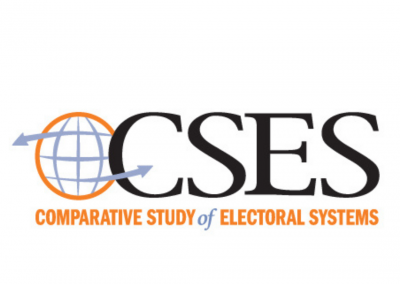Note: The following announcement was sent to the CSES email list. To receive notices like this one by email, please join our mailing list.
July 3, 2023
Dear Comparative Study of Electoral Systems (CSES) User Community,
Now is the time to begin our work on identifying a substantive theme for CSES Module 7, for which data collection will start sometime in 2026.
To that end, the CSES Planning Committee has established a Subcommittee to identify gaps in existing research that CSES Module 7 might address. As part of their work, the Subcommittee is to canvas possible substantive themes for the new module and questions to include in the resulting survey.
With this note, we are asking the CSES user community to propose themes and questions that the Task Force should consider for CSES Module 7.
Proposals should be ten pages or shorter and single-spaced. Appendices are not allowed. Hyperlinks to external materials are also not allowed.
While we will accept your ideas in any format, proposals should ideally include as many of the following items as possible:
- Title of proposal
- A brief overview of the proposal
- A brief discussion of the theory and broader literature that the proposal would contribute to
- A summary and links to previous national or comparative studies and findings
- A brief discussion of methodological issues, for instance, regarding equivalence across countries
- A CV for each of the proposers
- Suggesting specific survey questions relevant to the proposed theme is not required, but it is strongly encouraged. If your proposal suggests particular questions, please include evidence from any previous testing and validation of the questions, as prior testing will make for a stronger application. Please remember that CSES questions appear in post-election surveys – that is, surveys conducted after the election in each participating nation.
- Please also suggest any contextual/macro variables necessary to include in the dataset to address the proposed theme
Proposals should address as many of the following evaluation criteria as possible:
- The potential of the theme and questions to significantly advance science and answer “big questions” that need to be studied.
- The theme and questions take advantage of the unique design of the CSES – that is, through examining differences in individual behaviors and attitudes across various nations and electoral systems.
- The associated questions are specifically useful within the context of elections and in understanding turnout and voting behavior.
- The suitability of the theme for cross-national comparison and to be run in all participating nations, not just for established democracies; for a list of nations that have previously participated in CSES, please visit the following link.
https://cses.org/data-download/download-data-documentation/election-studies/ - The theme is of broad interest to the scientific community, lending itself to a variety of different analyses and allowing for the writing of many papers.
- The ability of the theme to be adequately addressed within the length of a typical CSES module. A CSES module can be up to 10-15 minutes in length. Of this, 5-8 minutes of questions in each module are core content and likely to be automatically repeated. Therefore, up to 7-10 minutes of new questions are available to address the theme of the new module. Demographic and administrative questions do not typically count against this total. However, if specific questions from past CSES modules (administrative, demographic, or otherwise) are required to address the proposed theme, they may count against the available minutes. For a list of variables and questions which have appeared in past CSES modules, please visit the CSES website.
The CSES is a collaboration of election studies from around the world who volunteer time and space on their surveys for our modules. Participating election studies must be willing and able to implement all the content in a CSES module. Therefore, any proposal containing specialized designs – for instance, experimental components – should address how the procedure is possible and feasible to implement across all election studies in a comparative, multi-mode, international setting, in addition to meeting the above-mentioned criteria.
Please direct your proposals for consideration by the CSES Module 7 Task Force to the following email address: [email protected]
Proposals received on or before September 20, 2023, will be presented for feedback and discussion at a CSES Module 7 Planning Committee meeting.
Please be aware that the CSES Planning Committee may adapt and modify proposed themes and questions while developing the Module. For instance, on past occasions, the Planning Committee has integrated multiple proposals into a single theme. Selected proposals may be adapted in full or in part. Proposals that influence the theme and questionnaire will be acknowledged in the stimulus paper for the Module.
For more information about CSES, please visit our website at: http://www.cses.org/
To review questionnaires from past CSES Modules, please visit: https://cses.org/questionnaires/
Thank you in advance for your ideas, and thank you for your support of the CSES project!

